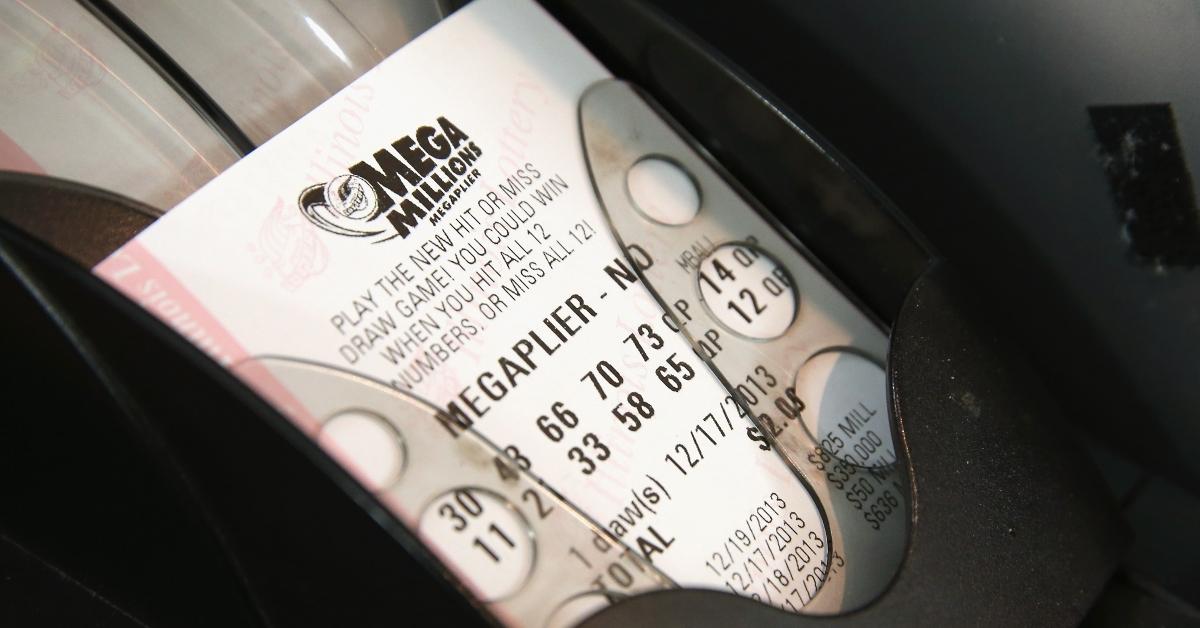Mega Millions: Why the Cash Option Is Less Than the Jackpot
You’ve got your Mega Millions tickets and you’re already thinking about ways to spend the $1.025 billion jackpot. Why is the cash option less than the jackpot?
July 27 2022, Published 3:02 p.m. ET

You’ve got your Mega Millions tickets in your hot little hands, and you’re already thinking about ways to spend the $1.025 billion jackpot. Maybe you’ll buy a house on the lake, a fancy sports car, or a trip to the Maldives. You might take the cash option because you want your money as soon as you can get it, but taking the lump sum payout will mean less money in your pocket. Why is the cash option less than the jackpot?
The cash option on lottery winning payouts is considerably less than the jackpot total because the lottery commission automatically takes about 61 percent of the total. Many see this as a penalty similar to those levied if you take money from a retirement fund too early.

So for the $1.025 billion Mega Millions kitty in the Friday, July 29 drawing, you would actually only get about $625 million if you took the cash payout.
Uncle Sam will then take his 24 percent piece of the pie, and you’ll also have to pay your state taxes. State tax rates vary, with California being the highest at 13.3 percent. If you’re lucky enough to live in a state with a 0 percent income tax, you’ll get a little more of the lottery winnings than those who live in states with income tax.
For example, if you live in Illinois, which has a state income tax rate of 4.95 percent, then your cash winnings of about $625 million would be whittled down to just over $444 million after the feds took their part (about $150 million) and the state took its share (about $30 million).
You’ll net more of the lottery jackpot with an annuity.
If you want the full jackpot, your best bet is to take the winnings in an annuity, which spreads the amount out in annual payments over 30 years. Each yearly payment increases by 5 percent. Taxes still apply, but the eventual net payout is larger than if you took the lump sum. The net payout after taxes for an Illinois resident would be about $728 million.
Why do lottery winners choose the cash option?
You may wonder why most lottery winners opt for the cash payout rather than the annuity if they lose a big chunk of the prize money. The answer is taxes. Lotto winners who take the annuity end up paying much more in taxes than those who opt for the lump sum because they have to pay yearly taxes. Whereas those who take the lump sum pay taxes once when they get the money, then the rest of the money is theirs to spend or invest.
According to the Mega Millions Payout Calculator on Lotterycritic.com, here’s the breakdown for an Illinois resident winning the $1.025 billion jackpot for both the cash option and annuity:
Lump sum option
- Gross payout - $625,250,000
- Federal taxes - $150,060,000
- Illinois taxes - $30,949,875
- Net payout - $444,240,125
Annuity option
- Gross payout - $1,025,000,000
- Federal taxes - $246,000,000
- Illinois taxes - $50,737,500
- Net payout - $728,262,500
